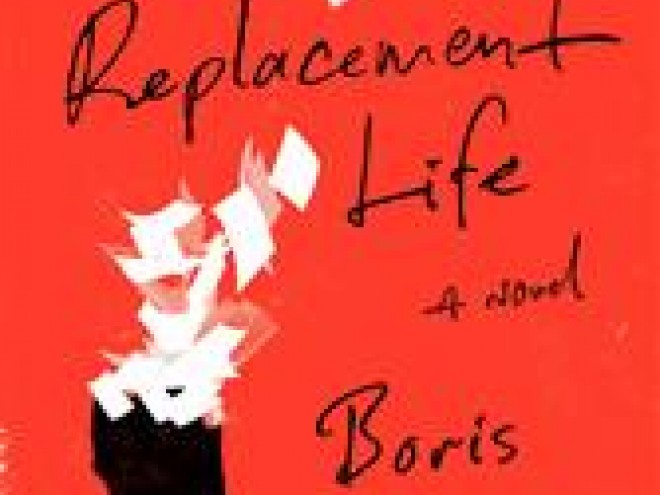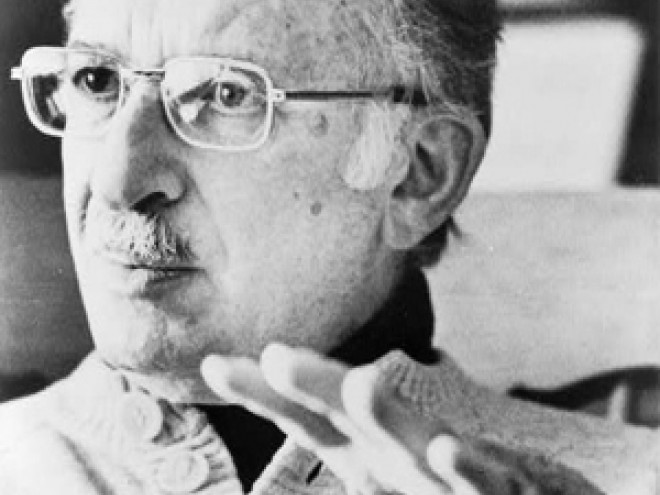Excerpt from Don’t Let My Baby Do Rodeo by Boris Fishman.
Maya had been early to pick up Max the day he didn’t come home with the school bus. Usually she was still powering up Sylvan Gate Drive when the old yellow bus sputtered to its crown, the doors exhaled, and Max tumbled out, always before the Kroon girl because Max always took the front seat. Even in the family Corolla, it was Alex at the wheel, Max in the passenger seat, and Maya in the back. Maya had gathered that the popular children sat back of the bus. She had asked Max once why he wasn’t among them. “There’s too much noise in the back,” he had said, and she had felt a hidden satisfaction at his indifference.
That day, after a week of disabling warmth premature even for New Jersey in June, a note of unhumid reprieve had snuck into the air — Maya had caught it on her drive home from the hospital and so she had walked out of the town house early. On the rare occasions Alex was home early enough to collect Max, he drove the thousand yards to the head of the drive — Alex enjoyed the very American possibility of this convenience. But Maya walked. She was on her feet all day at the hospital, but she shuttled between three rooms and it was all indoors.
 In Kiev, Maya’s mother had always awaited her by the school doors, painted and repainted until they looked like lumpy old women. The walk home was time alone for mother and daughter; by the time they reached their apartment, Maya’s father would already be at the kitchen table slouched over the sports section, the only part of the newspaper where things didn’t have to be perfect. Maya’s mother would begin their walk by asking all the questions a mother was required to ask of a daughter’s school day — even as an eight-year-old, Max’s age, Maya understood this as a formality — but then, after a discreet pause, Galina Shulman would bring her daughter up to date on the indiscreet doings of “the great circus” of their thousand-apartment apartment building.
In Kiev, Maya’s mother had always awaited her by the school doors, painted and repainted until they looked like lumpy old women. The walk home was time alone for mother and daughter; by the time they reached their apartment, Maya’s father would already be at the kitchen table slouched over the sports section, the only part of the newspaper where things didn’t have to be perfect. Maya’s mother would begin their walk by asking all the questions a mother was required to ask of a daughter’s school day — even as an eight-year-old, Max’s age, Maya understood this as a formality — but then, after a discreet pause, Galina Shulman would bring her daughter up to date on the indiscreet doings of “the great circus” of their thousand-apartment apartment building.
Maya was exhilarated by these walks for she felt her mother spoke as if Maya was not present, or if she were, then as an equal, a friend, not a daughter to whom convention described responsibilities. So — a silent hello to a woman now five thousand miles away — Maya picked up Max from the school bus. It wasn’t particularly necessary — the danger was not in the distance Max would have to cover down to their town house, but in his time out in the world. But it was Maya’s only time alone with her son. She used it to try to understand why she couldn’t always speak with Max in the same easy, unspooling way her mother had spoken with her. Maya did not have her mother’s imagination; that was part of it, certainly. Nor did she have her mother’s curiosity about her neighbors, though Maya knew that this was a failure of her looking, not their living. But none of that seemed the answer. Maya asked her son about school, questions he answered politely and briefly — she never failed to marvel at the unkinked Russian speech of her not-Russian son — and then both fell silent. All she could think was to take his hand, and he let her hold it. She felt she was failing him in some way. Failing him, and couldn’t say how; she felt thick and graceless.
They had been lucky, the adoption supervisor had kept reminding them, as if he worked on commission. American parents often had to go abroad to find children: Malaysia, Korea, Romania. Bribes, endless waiting, no medical records. Whereas the Rubins got an outright American. Who got an American any longer, and a brand-new baby instead of a child old enough to have been terrorized by somebody else? Maya had the ungrateful thought that she did not want an American: She felt that she would have more to say to a Romanian child. In the sleepless hold of another interminable night, she had shaken awake Alex and said so. He closed his fingertips around the knob of her shoulder, as if she were a loose lightbulb: “He’s a newborn. Was New Jersey familiar to you when you moved here? This house? But now it’s all home.” He turned onto his side, cupped one of her breasts from behind, and said: “Sleep, Maya — please.”
She had picked out the weary magnanimousness in his voice — he had to indulge not only her willingness to adopt, but her anxieties over it. Only who wanted a child more than he did? However, a biological solution being impossible, Alex’s desire had just one condition — that he not be made to confess it. And so she carried on as the secret advocate for them both. His contribution was to disparage the woe conjured up by her railroad mind at two in the morning. “Railroad mind” — that was Alex’s term for the hive of Maya’s brain. Railroads made him think of motion, steam, frantic activity. What he really meant was that she was like some Anna Karenina — superfluously melodramatic. And Maya understood what he really meant only because she had a railroad mind.
Alex had been ten years younger than Maya’s eighteen when his family had come to America; the Rubins had come for good, whereas Maya had come on an exchange program in 1988, the first year such things were possible. After college, Maya was supposed to return to the USSR — a plan altered by her love affair with Alex and the end of the USSR. Alex had taken to America — he spoke with confidence about Wall Street, the structure of Congress, technology. Maya conceded his authority. Only once had she exclaimed that in twenty years he had almost never left New Jersey, so what did he know? Alex had looked at her as if at a child who doesn’t understand what it means to say things one will later regret, and retreated upstairs. He did not speak to her for three days, their sullen meals spent communicating through Max and his grandparents, and Maya never said that again.
Copyright © 2016 by Boris Fishman. Reprinted courtesy of Harper, an imprint of HarperCollins Publishers.
Related Content:
Boris Fishman was born in Minsk, Belarus. He is the author of the novels A Replacement Life (winner of the VCU Cabell First Novelist Award and the American Library Association’s Sophie Brody Medal) and Don’t Let My Baby Do Rodeo. Both were New York Times Notable Books of the Year. Savage Feast, a family memoir told through recipes, will be out in paperback in early 2020. His journalism has appeared in The New Yorker, The New York Times Magazine, and many other publications. He lives in New York and teaches creative writing at Princeton University.


